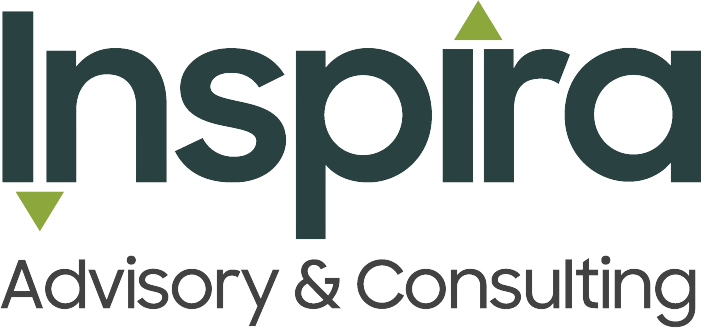The Disability Welfare Act of Bangladesh in 2001 was replaced by the Rights and Persons with Disabilities Act in 2013, indicating a paradigm shift from a welfare-based approach (based on the medical model of disability) to a rights-based approach. This new approach not only advocated for the fundamental human rights of persons with disabilities (Persons with Disabilities), but also emphasized their full participation in the social and political affairs of the country. However, the significant step towards realizing disability rights, there are notable deficiencies in the effective implementation of the Rights and Persons with Disabilities Act 2013, resulting in limited opportunities for Persons with Disabilities to participate in decision-making processes.
Moreover, the current allocation for persons with disabilities in the national budget stands at a mere 0.37 percent, while they receive only 2.07 percent of the safety net budget. This inadequate distribution continues as out of 120 safety net initiatives, only 8 are specifically designed to address the welfare of persons with disabilities. The lack of disability-inclusive safety net programs further exacerbates the challenges faced by people with disabilities. Additionally, the caregivers of individuals with severe disabilities are also not provided with appropriate allowances.

The Rights and Persons with Disabilities Act in 2013 replaced the previously formulated Disability Welfare Act of 2001, marking a shift from welfare-based approach (a medical model of disability) to a rights-based approach. This rights-based approach did not only advocate for the fundamental human rights, it also focused on full participation of the Persons with Disabilities in social and political affairs of the country.

However, the aforementioned legislation exhibits certain deficiencies and inadequacies, which pose significant challenges for individuals with disabilities in addressing their specific needs and concerns and actively participating in public life. Consequently, it is imperative to intervene on the accessibility of public services for persons with disabilities (Persons with Disabilities) to ascertain the shortcomings of the 2013 Act and implement appropriate measures to rectify them.
Persons with Disabilities in Bangladesh:
According to the National Survey on Persons with Disabilities (NSPD) 2021, 2.80 percent of the population in Bangladesh lives with disabilities, with the percentage being 3.28 for males and 2.32 for females. Disability rates are slightly higher in rural areas at 2.89 percent than in urban areas at 2.45 percent. Moreover, disability is less prevalent among the younger population compared to the older population.

Access to Education of the Persons with Disabilities:
Considering access to education, the NSPD 2021 says, more than half of the Persons with Disabilities (54.74%) have no formal education, with 23.11% having completed primary education (grades I-V) and 18.33% having completed secondary education (grades VI-XII). Merely a small percentage of individuals (1.57%) have pursued higher education beyond grade XII. A higher percentage of females (62.27%) compared to males (49.44%) are likely to have no formal education.

Access to Healthcare Services of Persons with Disabilities :
In terms of healthcare, the NSPD 2021 says, 61.98% of individuals with disabilities received healthcare services as \needed (within the three months preceding the survey).The percentage is similar between males (61.33%) and females (62.91%).

Focusing on transport, accessibility for the Persons with Disabilities appears to be inadequately taken into consideration for both roads and public transportation vehicles. Pedestrian bridges, road crossings, and bus stops are not conveniently accessible for the Persons with Disabilities. The Persons with Disabilities often has no option but to use private modes of transportation, but the drivers of these services sometimes charge up to three times the regular fare, citing the additional assistance required for boarding and alighting the vehicles.
Despite the existence of several legal rights in Bangladeshi law, people with disabilities face challenges in obtaining legal services and accessing justice. The 2013 Act does mandate justice sector actors to receive disability-related training, but the current curricula for professionals such as judges, lawyers, police, court officials, forensic experts, and medical practitioners, including psychiatrists and psychologists, do not include a dedicated module on the rights of persons with disabilities. Nonetheless, ad hoc training sessions on the rights of persons with disabilities are periodically organized for these groups, initiated by administrative authorities and non-governmental organizations. Overall, justice sector actors and legal service providers have yet to play a significant role in securing legal remedies for people with disabilities in Bangladesh.
Access to Livelihood opportunities for the Persons with Disabilities:
The Persons with Disabilities of Bangladesh is less likely to participate in economic activities. According to the Report on National Survey on Persons with Disabilities (NSPD) 2021, about 33.78% of the Persons with Disabilities aged 15-64 are employed. In terms of sex, female Persons with Disabilities are far behind compared to their male counterparts, about 47.59% of the male Persons with Disabilities and 12.80% of the female Persons with Disabilities are employed.

Self-employment has emerged as the dominant form of employment for Persons with Disabilities) in Bangladesh. This trend can be attributed to several factors, including limited job opportunities in the formal sector and the need for flexible work arrangements to accommodate their specific needs. Self-employment provides with a greater sense of empowerment and autonomy, enabling them to overcome barriers and contribute to the economy on their own terms.

The shift from the Disability Welfare Act to the Rights and Persons with Disabilities Act in Bangladesh marked a positive policy change. However, there are still significant gaps in its implementation, limiting the inclusion of persons with disabilities. It is crucial to address these shortcomings and intervene effectively to ensure equal access to education, healthcare, justice, and livelihood opportunities for person with disabilities. Comprehensive and targeted interventions are necessary to fully realize the rights of persons with disabilities in Bangladesh.




